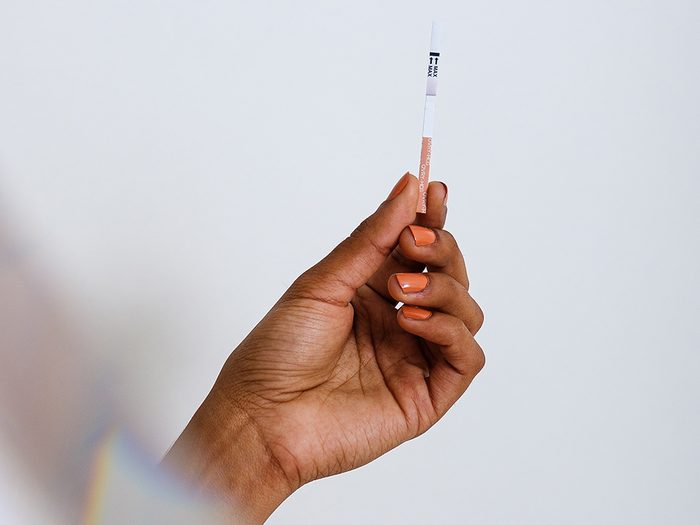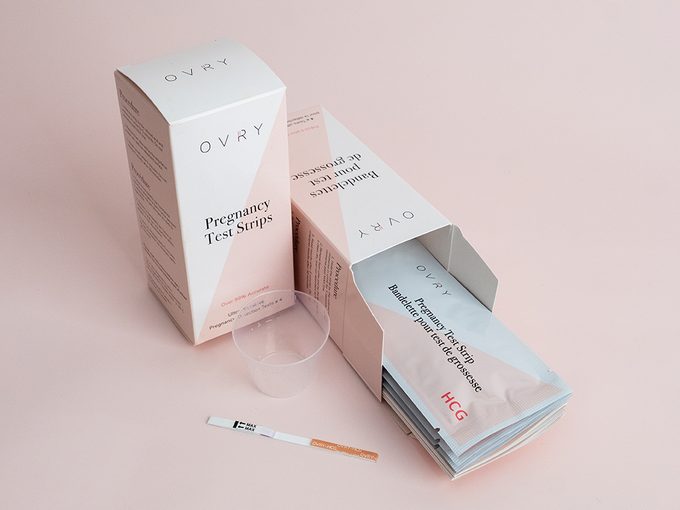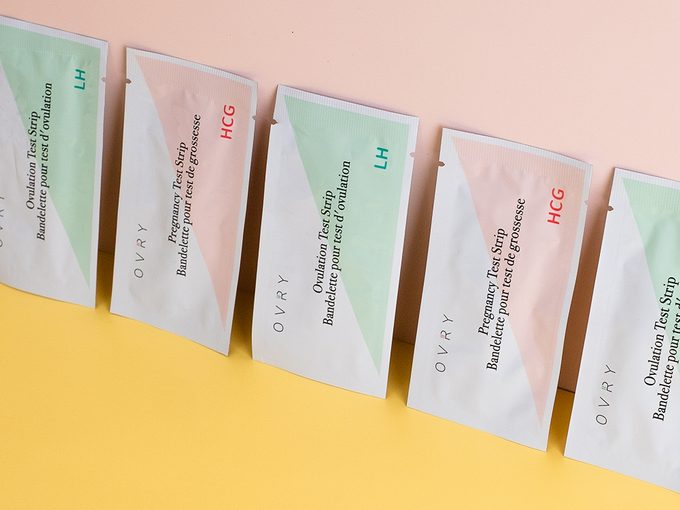This Canadian Company Made Pregnancy and Ovulation Tests So Much Better

...and a whole lot more convenient.
For in-office pregnancy tests, most family doctors use a simple little strip. This thin piece of paper is arguably more effective, has zero plastic waste and is significantly less expensive than their drug-store counterparts. So, why aren’t we using them?
It’s a question that Vancouver-based Jackie Rhind, founder of Ovry, sought out to explain. According to a survey conducted by the brand, 80 percent of people are not familiar with plastic-less pregnancy tests. “There are companies that make them [for the public], but there was no brand delivering them in a direct-to-consumer way, beyond some versions on Amazon that, in the eyes of the consumer, maybe not the most trustworthy,” says Rhind. “So I identified an opportunity to create a sustainable, less expensive, more convenient alternative.”
(Related: What You Need to Know if You’re Delaying Pregnancy During Covid)

Rhind launched Ovry in August 2020, selling pregnancy strips in a box of four for $18, or 18 for $36. (A single drug store pregnancy test is typically priced at $20.) They have a 24-month shelf life (from the manufacturing date, which can be found on the package) and the strips, which are made in Canada, detect pregnancy by being submerged in urine (i.e. you pee in a cup). Rhind says they are just as, if not more, accurate than conventional alternatives—they’re over 99.7 percent accurate.
Rhind suspected people would appreciate the ability to purchase pregnancy tests in batches at an affordable price. It’s something she thought about many times, growing up with a blood clotting disorder called Factor V Leiden, which makes her unable to use hormonal birth control. “I had many awkward moments at the pharmacy buying pregnancy tests when I was a teenager,” says Rhind.
(Related: This Unexpected Technique Can Help Control Anxiety)

The Ovry questionnaire, which surveyed about 450 Canadian women, also asked how many times participants have purchased an at-home pregnancy test when they thought they might be pregnant. Only 65 people had gotten a test to verify their suspicion, meaning 35 percent were potentially dealing with unnecessary stress. “To me, that was an indication that there are barriers to purchasing these tests, whether it be cost, stigma, just the inconvenience of it, or the waste,” says Rhind.
A range of people have become Ovry consumers, particularly athletes with irregular cycles, and those trying to conceive through IVF or naturally and require more tests, says Rhind. The direct-to-consumer brand also offers ovulation test strips, which come in a box of four for $15, or combo boxes with pregnancy tests.
Next: Everything You Need to Know About the Arm Implant for Birth Control




